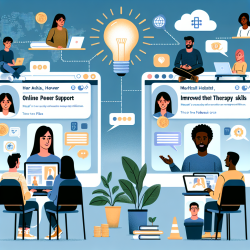As a Special Education Director, I understand how complex and overwhelming special education laws and regulations can be for parents. That's why the Connecticut State Department of Education has created "A Parent’s Guide to Special Education in Connecticut." This comprehensive guide is designed to help parents, guardians, and other family members navigate the special education system, ensuring that students with disabilities receive the support they need to reach their full potential.
Introduction
This guide provides valuable information about laws, regulations, and policies affecting special education programs and services in Connecticut. By working collaboratively, parents, families, and schools can help students with disabilities achieve high expectations and succeed in life.
Key Terms to Know
- Accommodations: Supports and services that help students demonstrate learning without changing curriculum expectations.
- Applied Behavior Analysis (ABA): A scientific method used to improve or change specific behaviors.
- Assistive Technology: Equipment or products that enhance the functional capabilities of individuals with disabilities.
- Behavior Intervention Plan (BIP): Strategies and supports to teach appropriate behaviors and eliminate disruptive ones.
Understanding Your Rights
Special education laws are designed to protect students with disabilities, ensuring they receive necessary services. The guide explains key concepts and how to be an effective partner in the special education process. If you need further assistance, contact the Director of Special Education in your local school district or the Connecticut Parent Advocacy Center (CPAC).
Important Contacts
For more information or assistance, you can reach out to the Bureau of Special Education, Connecticut State Department of Education at 860-713-6910, or the Connecticut Parent Advocacy Center (CPAC) at 860-739-3089.
Extended School Year Services (ESY)
ESY services are special education and related services provided beyond the normal school year. The need for ESY services is determined individually by the planning and placement team (PPT).
Transition from Birth to Three Program
Transition planning for children moving from the Birth to Three program to the school district is crucial. A transition planning conference should be held no later than 90 days before the child’s third birthday.
Special Education Complaint Resolution Process
If you believe your school district is not following special education laws, you can file a complaint with the Bureau of Special Education. A written report of findings and conclusions will be provided within 60 calendar days.
For More Information
For a detailed understanding of your rights and the special education process, please follow this link.










